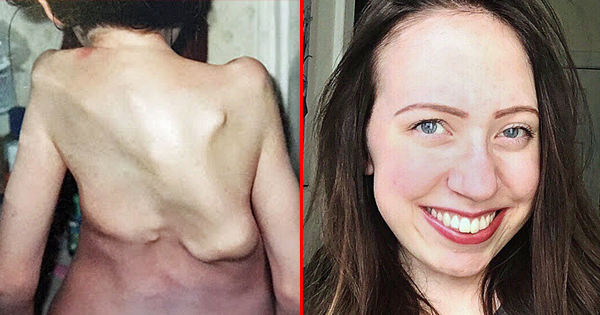Advertisement
Jasmin Floyd, 23 years old, was diagnosed with Fibrodysplasia Ossificans Progressiva, which is a disorder in the body that causes bone formation with her muscles, thus creating a second skeleton, the Metro reports.
Floyd is now trying to check every single thing on her bucket list so that by the time her condition completely turned her immobile, she would be content to declare that she had done it all.
According to Metro, there are only 800 recorded cases of FOP in the world. Floyd was only five years old when she began to suffer from excruciating pains in her neck.
Floyd said, “The extra bone that has grown in my joints, is causing severe limited mobility, they describe it as bone forming over the joints, locking them in and impairing mobility. My spine is severely affected with scoliosis, the bone grows somewhere it shouldn’t and for me it’s been more active in my upper body.
“Due to FOP’s progression, I’ve lost full mobility in my neck and jaw and partial mobility in my shoulders, elbows and hips. Last summer I went through an elbow flare-up and couldn’t unbend it without easing it with an ice pack.”
Years went by and Floyd’s muscles continue to turn into bone. She lost her muscular control in her jaw, neck, shoulders, elbows, and hips. She already suffered from difficulty in speaking and eating, for her mouth can only open as wide as one centimeter.
Floyd said, “At the same time, I was also losing mobility in my jaw, which made everything much more difficult. The conditions often described as stone man syndrome, referring to the extra bone and it’s like a person is turning into stone.
“Because my condition is so unpredictable it’s encouraging me to do everything I want to while I can.”
The more she loses her ability to walk, the more she relies on moving around while on a wheelchair. However, she kept a promise to complete her bucket list despite her condition. Floyd’s inability to life her arms above her shoulder may make things a little too difficult for her.
Floyd said, “I try to be as independent as I can. I have a hard time bending and can tell I’m losing the ability to move as easily. One of the hardest parts is trying not to be afraid of this condition, it’s so unpredictable that I can never expect what will happen next.”




